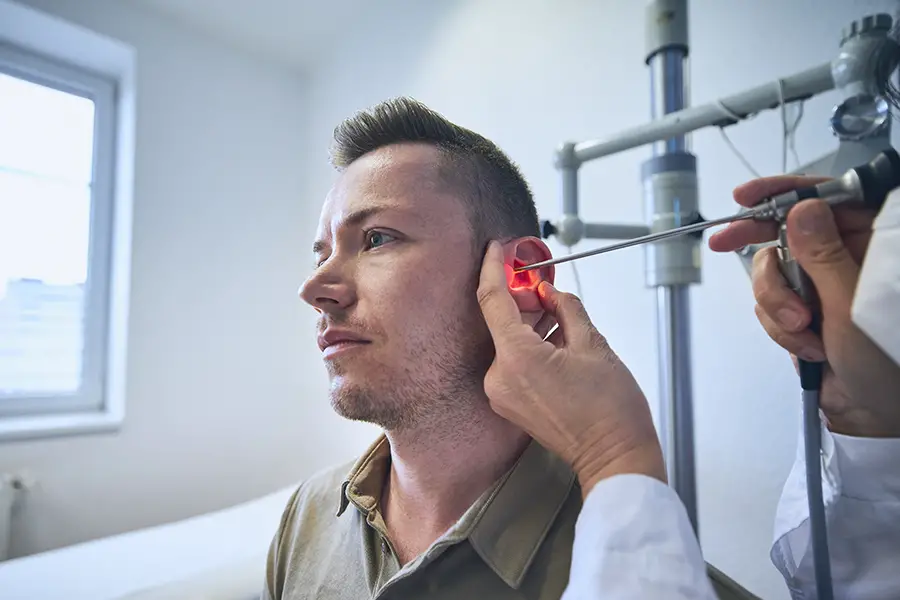Otosclerosis, also known as Otospongiosis, often associated with adults, particularly seniors, is a progressive hearing condition that does not spare the young. This article aims to illuminate the experiences of young people living with otosclerosis, emphasizing the importance of early intervention and empathetic support.
Otosclerosis in Young Individuals
While Otospongiosis is less commonly discussed in the context of youth, it’s a reality for many children and teenagers. This lack of awareness can lead to misconceptions and feelings of isolation for those affected. By exploring the lives of young people with otosclerosis, we aim to foster understanding and provide practical advice for parents and caregivers.
For instance, Lily, a nine-year-old girl, was initially thought to be inattentive by her parents due to her repeated requests to repeat statements. It was only after her teacher noticed her falling grades that a professional evaluation led to her otosclerosis diagnosis.
Managing Otosclerosis in Youth
Effective management of Otospongiosis in young individuals like Lily involves a comprehensive approach that includes medical treatment, auditory training, psychological support, and educational accommodations. Early diagnosis and an integrated management approach are crucial in mitigating the impacts of otosclerosis on young people.
Otosclerosis and Its Impact on Children’s Learning
Otosclerosis can significantly affect a child’s learning and development. Hearing loss can lead to challenges in language acquisition, academic performance, and social interaction. For example, Daniel, a 12-year-old boy with otosclerosis, struggled with schoolwork and social interactions due to difficulty following classroom discussions. Timely interventions, including hearing aids and speech therapy, greatly improved his school performance and social participation.
Supporting Teens with Otosclerosis
The teenage years are a critical period of growth and self-discovery, which can be complicated by otosclerosis. Teens like Sarah, a 16-year-old student and aspiring musician, may experience emotional turmoil alongside the physical impacts of hearing loss. Providing medical help and emotional support, including therapy sessions and group therapy, can be vital in helping them navigate these challenges.
Pediatric Otosclerosis: Unique Challenges
Pediatric otosclerosis presents unique challenges due to the critical stages of development in children. James, diagnosed at four, faced significant speech delays, highlighting the importance of early diagnosis and intervention. His treatment included hearing aids, intense speech therapy, and parental education, emphasizing the need for a comprehensive approach to pediatric otosclerosis.
Early Onset Otosclerosis: Insights from Case Studies
Early onset otosclerosis provides valuable insights into the condition. Alex, diagnosed at six, faced difficulties in school and social isolation. However, with family support, he learned sign language and excelled academically, becoming an advocate for others with otosclerosis.
Summary
Living with otosclerosis at a young age is a journey filled with unique trials, but also resilience, adaptability, and courage. The stories of Lily, Daniel, Sarah, James, and Alex show that otosclerosis may alter their world experience, but it doesn’t define them. Parents and caregivers, educators, and healthcare professionals play a crucial role in supporting these young individuals, fostering a nurturing environment and advocating for their needs.
FAQ Section
What is Otosclerosis? Otosclerosis is a condition causing abnormal bone growth in the ear, leading to hearing loss.
How is Otosclerosis Diagnosed? Diagnosis involves hearing tests and medical evaluations.
Can Otosclerosis Be Treated? Yes, with hearing aids or surgery like stapedectomy.
Does Otosclerosis Affect Children? Yes, otosclerosis can affect individuals of all ages, including children.
How Does Otosclerosis Impact Learning? Hearing loss from otosclerosis can affect language development, academic performance, and social skills.
What Support is Available for Teens with Otosclerosis? Support includes medical treatment, psychological counseling, and educational accommodations.
Practical Tips
- Seek Early Diagnosis: Early detection is key to effective management.
- Comprehensive Care: Combine medical treatment with auditory training and psychological support.
- Educational Support: Work with schools to provide necessary accommodations.
- Encourage Open Communication: Help children express their feelings about their condition.
- Stay Informed: Keep up-to-date with the latest research and treatment options.
Annotated References:
- Genome-wide screen of otosclerosis in population biobanks: 27 loci and shared associations with skeletal structure – A study from Nature Communications exploring the genetic aspects of otosclerosis.
- Conservative Otosclerosis Treatment With Sodium Fluoride and Other Modern Formulations: A Systematic Review – A review from PMC – NCBI discussing modern treatment options for otosclerosis.
HEARING LOSS NEWS
HEARING QUEST
TINNITUS GURU



